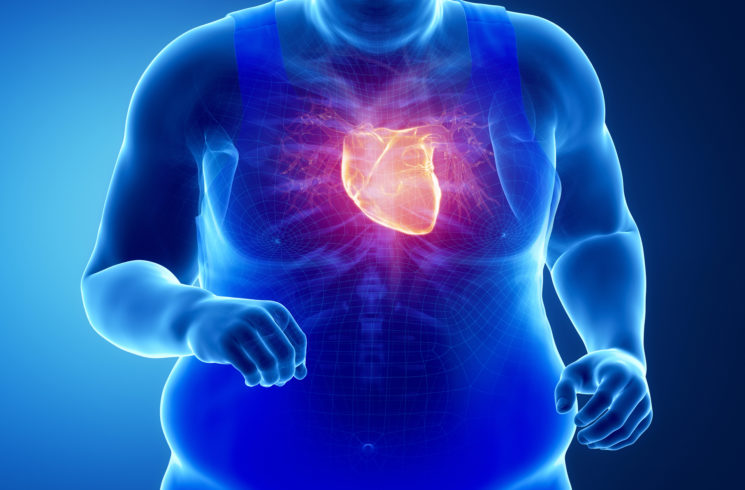
Hormonal Imbalance and Weight Gain
Join Dr Kyrin Dunston, MD and Gez Agolli, NMD DrPH on how to effectively get to the root cause of obesity.
Learn the 7 imbalances that hinder your weight-loss
Have you been unable to lose weight even with diet and exercise? No matter how an imbalance manifests on the outside, the internal reality remains the same — any and all hormonal imbalances lead to difficulty losing weight
1. Inflammation
Digestive, allergies, autoimmune disease, arthritis, asthma, eczema, acne, abdominal fat, headaches, depression or sinus disorders are associated with chronic inflammation, which has become recognized as the root cause of obesity and most diseases associated with aging. At the 2007 Postgraduate Nutrition Symposium at Harvard University, researchers revealed findings suggesting that inflammation and excess insulin are the major contributors to rising rates of type 2 diabetes and the overall fattening of North America.
2. Excess insulin (Gateway to Diabesity)
Insulin is an essential substance whose main function is to process sugar in the bloodstream and carry it into cells to be used as fuel or stored as fat. There are several reasons for excess insulin, but the main culprits are: stress, consuming too many nutrient-poor carbohydrates (the type found in processed foods, sugary drinks and sodas, packaged low-fat foods and artificial sweeteners), insufficient protein intake, inadequate fat intake and deficient fibre consumption.
Heart palpitations, sweating, poor concentration, weakness, anxiety, fogginess, fatigue, irritability or impaired thinking are also common short-term side effects of high insulin. Unfortunately our body typically responds to these unpleasant feelings by making us think we’re hungry, which causes us to reach for high-sugar foods and drinks. We then end up in a vicious cycle of hormonal imbalance, a condition called insulin resistance or metabolic syndrome which only furthers weight gain and our risk of diabetes and heart disease.
3. Depression or anxiety
Serotonin exerts a powerful influence over our mood, emotions, memory, cravings (especially for carbohydrates), self-esteem, pain tolerance, sleep habits, appetite, digestion and body temperature regulation. When we’re depressed or down, we naturally crave more sugars and starches to stimulate the production of serotonin.
Plenty of sunlight; a healthful diet rich in protein, minerals and vitamins; regular exercise and good sleep support serotonin. When we measure our current lifestyle against all the elements necessary for the body’s natural production of serotonin, the wide ranging epidemic of low serotonin is certainly not surprising. Add in chronic stress and multitasking — two of the main causes of serotonin depletion — and it’s a wonder any one of us has been left unaffected by low serotonin.
4. Chronic stress
Under situations of chronic stress — whether the stress is physical, emotional, mental or environmental, real or imagined — our bodies release high amounts of the hormone cortisol. If you have a mood disorder like anxiety, depression, post traumatic stress disorder or exhaustion, or if you have a digestive issue such as irritable bowel syndrome, you can bet your body is cranking up your cortisol. Through a complicated network of hormonal interactions, prolonged stress results in a raging appetite, metabolic decline, belly fat and a loss of hard-won, metabolically active muscle tissue. In other words, stress makes us soft, flabby and much older than we truly are!
5. Toxic estrogen
Researchers have identified excess estrogen (in both sexes) to be as great a risk factor for obesity as poor eating habits and lack of exercise.
There are two ways to accumulate excess estrogen in the body: we either produce too much of it on our own or acquire it from our environment or diet. We’re constantly exposed to estrogen-like compounds in foods that contain toxic pesticides, herbicides and growth hormones. A premenopausal woman with estrogen dominance will likely have PMS, too much body fat around the hips and difficulty losing weight. Menopausal women and men may experience low libido, memory loss, poor motivation, depression, loss of muscle mass and increased belly fat.
6. Low testosterone
Testosterone enhances libido, bone density, muscle mass, strength, motivation, memory, fat burning and skin tone in both men and women. When testosterone is low, an increase of body fat and loss of muscle may still happen — even with dieting and exercise.
Testosterone levels tend to taper off with age, increased obesity and stress, but today men are experiencing testosterone decline much earlier in life — an alarming finding, considering low testosterone has been linked to depression, obesity, osteoporosis, heart disease and even death.
Researchers at the University of Arizona College of Medicine, blames the proliferation of endocrine-suppressing, estrogen-like compounds used in pesticides and other farming chemicals for the downtrend trend of testosterone levels. Phthalates, commonly found in cosmetics, soaps and most plastics are another known cause of testosterone suppression.
7. Hypothyroidism
Without enough thyroid hormone, every system in the body slows down. Those who suffer from hypothyroidism feel tired, tend to sleep a lot, experience constipation and weight gain typically occurs. Extremely dry skin, hair loss, slower mental processes, feeling cold, brittle hair, splitting nails, diminished ability to sweat during exercise, infertility, poor memory, depression, decreased libido and an inability to lose weight are also symptoms to watch for.
If you suspect you have a thyroid condition, make sure your doctor assesses you and your full range of symptoms, not just your blood work. Even levels of TSH (an indicator of thyroid function) within the normal range has been proven to accelerate weight gain and to interfere with a healthy metabolic rate in both men and women. Very important to be properly evaluated for a comprehensive thyroid evalaution consisting Free T3, T4, Thyroid antibodies and Reverse T3
